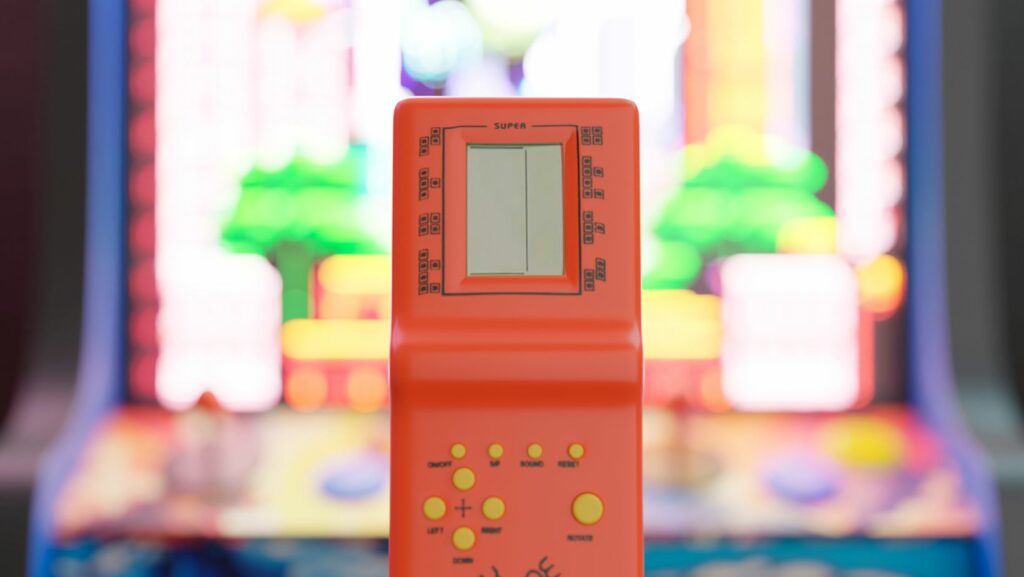Step into the world of flashing lights, vibrant colors, and electrifying sounds. Yes, we’re talking about the thrilling universe of arcade games. These nuggets of nostalgia have been a staple of our entertainment diet for decades, offering a delightful escape from reality.
Evolution of Arcade Games
Going beyond the sheer fun they provide, arcade games harbor a rich history. Embarking on its journey in the early 1970s, the first commercially successful arcade game, Computer Space, surfaced. Hot on its trail, the iconic Pong game emerged, revolutionizing the gaming industry and introducing the concept of video games to the masses.

In the 1980s, gaming companies introduced innovations that further enraptured gamers. Contextual cues hint at milestones like Space Invaders’ debut, ushering in the golden era of arcade games. This period, brimming with rapid technological advancements, bore witness to numerous iconic releases. From the birth of the legendary Pac-Man to the rise of galaxies far far away in Star Wars, each release catapulted the popularity of arcade games.
The 1990s marked the advent of 3-dimensional games, offering an immersive gaming experience that was a game changer, literally. Titles such as Virtua Fighter and Time Crisis sent shock waves through the industry, taking realism in gaming to unprecedented levels.
Through these decades, arcade games evolved by leaps and bounds, holding a mirror to the technological advancements of the era. Each release brought forth a new level of complexity and immersion, rendering arcade games an enduringly popular pastime.
Most Popular Arcade Games

- Pac-Man: Released in 1980 by Namco, Pac-Man ranks among the most iconic arcade games. Set in a neon maze, gamers guide the game’s titular character as he chomps pellets and avoids ghosts.
- Space Invaders: Taito launched Space Invaders in 1978. The space-themed game, involving the shooting of descending alien invaders, revolutionized the gaming industry by pioneering the “Shoot ’em up” genre.
- Donkey Kong: Nintendo’s Donkey Kong, released in 1981, catapulted the company into arcade game fame. This game introduced the world to two enduring characters: Donkey Kong, the antagonist, and Mario, the heroic plumber.
- Street Fighter II: Defined as the staple of competitive fighting games, Capcom’s Street Fighter II hit the arcades in 1991 and has been a favorite ever since. Its head-to-head battles and diverse character pool revolutionized the genre.
- Asteroids: In 1979, Atari introduced Asteroids, an arcade game that set players in control of a spaceship amidst a field of floating asteroids. The simple, yet captivating game was a commercial success.
These games stand as testaments to the innovation, creativity, and evolution that characterize the enduring allure of the arcade gaming industry.
Impact of Arcade Games on Modern Gaming
Arcade games fostered a sense of community, a hallmark now embedded deeply within modern gaming landscapes. A prime example remains the multiplayer feature, initially introduced in arcade setups, well before home-based gaming systems adopted it. Galaga and Street Fighter II, for instance, introduced the concept of competitive multiplaying, a trend which dominates current digital gaming.
Arcade games set the precedent for graphics evolution too. Developers incrementally refined visuals from Pong’s modest graphics to Time Crisis’ 3D realism. This evolution not only heightened the gaming experience but also paved the way for advanced visual technology in modern gaming.

Furthermore, arcade gaming nurtured an environment of quick decision-making amid gameplay, a time-bound skill that still remains relevant. Titles such as Pac-Man and Space Invaders served challenges in the form of digital mazes or incoming enemies, respectively—training players to think rapidly and react almost instinctively.
Similarly, the progression of the games’ difficulty, mapped to player’s skill, helped set modern gaming stage. For example, Donkey Kong increased complexity with each level, mixing elements of strategy and adaptation behavior that modern games such as Candy Crush and Among Us have inherited and amplified.
Yet notably, arcade games’ impact extends beyond game mechanics. Culturally, titles like Pac-Man have transcended the gaming realm, becoming icons in popular culture, and influencing the use of games as a powerful storytelling mode in the digital age.

